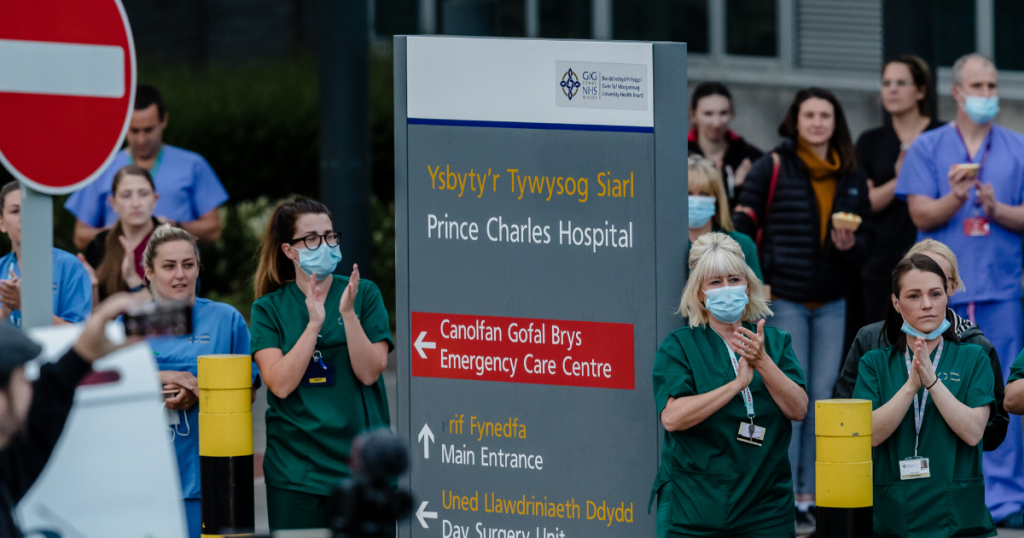
OET Hero Shinu is a nurse from South India currently living in the UK and working for the NHS. We sat down with her to answer the question: "What is it like working in the UK as a nurse from India?". Read through the article to find out how she is adapting to her new country.
Nurses around the world dream of living in the UK and working for the NHS; not only to work in the most prestigious public healthcare system but to also provide their families with all the benefits of living in the UK.
However, it is not an easy road. It requires hard work, strong nursing skills and proof of your English language proficiency.
But OET Hero Shinu shows it’s not out of reach. She has used her successful OET results to begin working!
Shinu is currently in her first year working at the gastroenterology department at the Prince Charles Hospital in Wales. She is living in shared accommodation paid for by the NHS and is working hard to protect her new home from COVID19.
“We’re working with a lot of people with COVID19, and many of my usual tasks have been suspended and replaced with COVID19 work,” she said.
 Nurse Shinu is working at the Prince Charles Hospital in Wales.
Nurse Shinu is working at the Prince Charles Hospital in Wales.
Unfortunately, due to the virus outbreak, the objective structured clinical examinations have been suspended. As a result, Shinu is currently working as a preregistered nurse and is unable to apply for her family to fly over.
“I am missing my family back home in Kerala,” Shinu said. “But I am working hard to help people in the UK from COVID19.”
“The clapping made me very proud to work for the NHS, it’s a dream come true and it’s amazing to think they were clapping for us.”
Working in a new country
One of several overseas nurses working at the hospital, Shinu is building relationships with fellow nurses.
“There’s not many people from overseas but I’ve been lucky to make some friends with colleagues who I live and work with.”
“Everyone has been super supportive, she said. “Supermarkets and shops have been offering all NHS staff free items and just been really nice.”
“But we have to be careful with everything, as we work with so many vulnerable people in our hospital wards.”
Alongside making new friends, Shinu is also trying to get used to living in the UK.
“Getting use to the food has been hard, what we serve to the patients smells very nice but is really different.”
“I brought spices with me from home, so my flatmates and I make lots of yummy food from home, like fish curry!”
Working for the NHS
The NHS is the largest public health system in the world and currently employs over 1.5 million people.
As the NHS continues to treat more patients than ever before, the NHS Trusts need even more nurses, doctors and other healthcare professionals.
Where Shinu lives, more than 1500 nurses are needed to fill vacancies, according to the Royal College of Nursing. Nurses like Shinu are hugely important to safe and effective healthcare in Wales and across the UK.
“I’m really happy to be working at the NHS,” Shinu said. “Everyone knows about it in India, it’s almost famous.”

“I was a little worried about coming to a new country, but I have not faced any discrimination from inside the NHS. Only once or twice from patients.”
“The NHS staff members I have met have been so supportive,” she said.
The NHS has strong diversity and inclusion standards that ensure internationally trained staff, like Shinu, receive the support they need.
Work is different from India
While Shinu is not working as a fully registered nurse, she has still been surprised by how different the work in the UK is to back home in India.
“It’s much more relaxed in the UK,” Shinu said. “Even with COVID19 outbreak, everyone is very professional but relaxed.”
And it is not just the mindset, responsibilities and work-life balance are different too.
“I only work three days a week, 13 days a month. But back in India, I would work six days a week and have much more responsibilities.”
It is much more specialised too.
“The NHS has someone for everything. For instance, they have an on-site pharmacist who prescribes medication and someone specifically to take blood for testing.”
While there are around 150,000 doctors and 320,000 nurses, the NHS workforce is highly diverse and includes physiotherapists, occupational therapists and medical scientists.
Shinu will be working within a multi-disciplinary workplace, where she will interact with healthcare professionals from across the medical landscape.
Still learning, every day
One piece of advice Shinu believes is important is that learning English does not stop when you arrive.
“Even though I studied hard with an OET preparation provider and passed OET, I still have to keep learning English.”
“I am still building my vocabulary, and getting used to accents,” she said. “A lot of patients have strong accents that make me ask them to repeat what they said.”
“Other times they will use words I haven’t heard before and I will need to ask another nurse to tell me what they said.

“They can tell from my eyes I have not understood,” she says, laughing.
But Shinu is not deterred, in fact she uses it as motivation to keep improving her English skills.
“I’m always learning, trying to improve my skills. I pray and practise.”